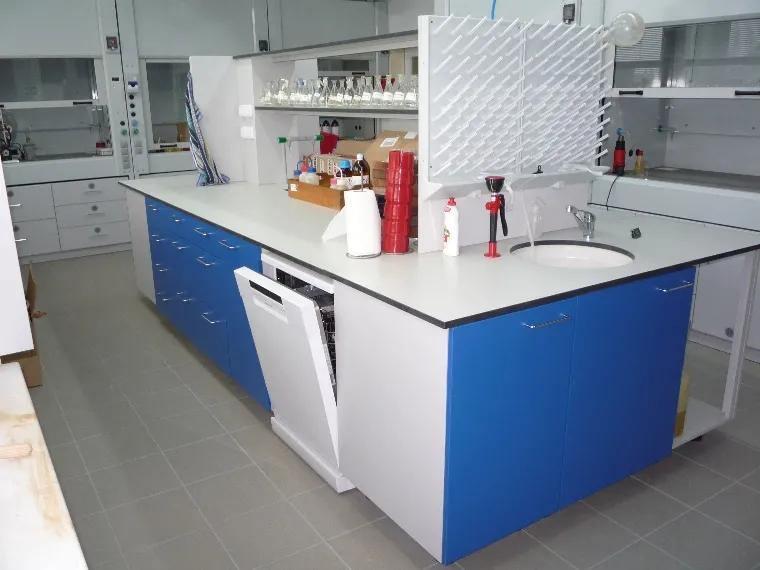Ing. Martin Cigl, Ph.D.
Our group works on technological part research and research projects running in cooperation with other research groups in our institute and within international cooperation. The most intensive current cooperation is realised with the Liquid Crystals Group of the Department of Dielectrics. Within our common research, we work on the molecular design and synthetic methods leading to materials with liquid crystalline (LC) properties, which are the manifestation of self-organisation on molecular level.
Thanks to the resulting unique electro-optical properties, liquid crystals became the foundation of almost omnipresent LCD display technology. In our laboratory we design and study synthetic pathways to rod-like and bent-shape (banana shape) LC molecules. Using chemical tools, we modify their structure to obtain new materials with advanced electro-optical properties or particular molecular organisation suitable for modern applications.
We also focus on utilisation of readily accessible natural substances as building blocks for liquid crystalline molecules (mesogens), which usually lowers the potential negative ecological impact of these compounds. We work intensively on design a synthesis of liquid crystalline materials with added functional properties or a combination of properties, given by the incorporation of special functional fragments to their molecular structure. By introduce a photosensitive moiety, playing a role of a molecular switch, creating so called photosensitive liquid crystals. Such materials are not only responsive to classical electric signal, but also by light.
Another type of materials under research are called reactive mesogens, in other words liquid crystalline monomers. In these compounds, the functional fragment is a polymerisable group or other reactive group thanks to which we can chemically bind our mesogenic molecule to a polymer of a surface of another material. Moving from low molecular weight materials to polymers is a very important step towards practical applications. Especially owing to chemical stability and easy processability of polymeric materials. From the chemical point of view, reactive mesogens are very similar to liquid crystalline ligands for nanoparticles. We work on development of molecules, which selectively bind to nanoparticle surface by specific functional groups. In contrast to ordinary surfactants used for stabilisation, of nanoparticle dispersions, our mesogenic ligands can induce formation of otherwise almost inaccessible organised nanoparticle assemblies.
In cooperation with the Department of Analysis of Functional Materials, we develop synthetic methods leading to new materials with potential cryoprotective properties for cells in the process of freezing and thawing. These operations are one of the key processes used in assisted reproduction. With the PALS research centre we work on synthesis of organic dyes based on nickel complexes for laser applications. We study their stability and degradation pathways, which are important characteristics for the correct function of the laser.


